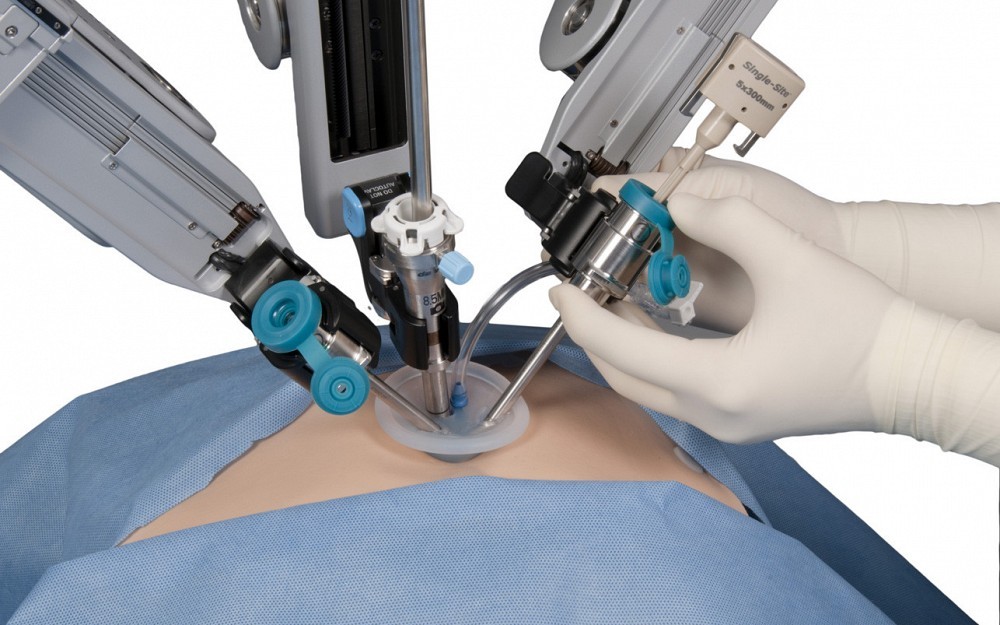
HEALTH LINE: Single-Site Hysterectomy Procedure May Reduce Recuperation Time, Visible Scars
CINCINNATIHysterectomy, a surgery to remove the uterus, is done for a number of reasons, including cancer, irregular bleeding, fibroid tumors, prolapse (slippage) of the uterus and endometriosis.
However, like any surgery, the procedure can leave visible scars and can take a woman weeks to recuperate.
Now, gynecological oncologists at UC Medical Center are offering single-site robotic hysterectomy using the da Vinci Surgical System, reducing the surgical site to a single one inch incision.
UC Health is the only medical system in Cincinnati offering this procedure.
"This technique allows me to perform a hysterectomy through a single sitethe navel. Therefore, the patient can still wear a variety of clothing and swimwear after surgery without showing scars, says Eric Eisenhauer, MD, medical director of gynecologic oncology at UC Health, a member of the UC Cancer Institute and professor at the UC College of Medicine. "Pain is minimized, and most patients go home after a day in the hospital.
During the procedure, the surgeon sits at a console, viewing the pelvis through a 3D, high-definition scope and uses controls below the viewer to move the instrument arms and camera.
In real-time, the system translates the surgeons movements into more precise movements of the miniature instruments that are inserted through a port at the navel.
In addition to hysterectomies, the system may be used for single-site robotic gallbladder surgery as well as gastric bypass surgery; however, these services will not be offered until a later date.
"Our goal is to get women recovered from their surgery as soon as possible, he says. "Regardless of whether or not you may think you need this procedure, if you notice any changes in your menstruation or any severe cramping, please see your gynecologist or health care provider to catch any health issues in the earliest stages.
Related Stories
Machine learning brings new insights to cell’s role in...
April 30, 2025
Researchers led by the University of Cincinnati’s Anna Kruyer and the University of Houston’s Demetrio Labate have published research in the journal Science Advances applying object recognition technology to track changes in brain cell structure and provide new insights into how the brain responds to heroin use, withdrawal and relapse.
Most teens prescribed SSRIs did not have recommended follow-up...
April 30, 2025
The University of Cincinnati and Cincinnati Children's Hospital Medical Center's Martine Lamy commented to Medscape on new research that found fewer than half of the adolescents prescribed a selective serotonin reuptake inhibitor (SSRI) at two large Chicago pediatric primary care clinics had a follow-up visit within the recommended 6 weeks.
UC recognizes students for innovation achievement and leadership
April 30, 2025
Read about the University of Cincinnati’s undergraduate innovation awards for 2025.
